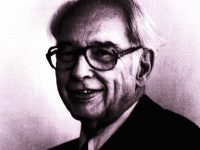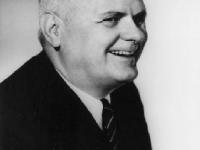ENIAC – The First Computer Introduced Into Public
On February 13, 1946, J. Presper Eckert and John Mauchly introduced Electronic Numerical Integrator and Computer, or ENIAC, the first general purpose, electronic computer. ENIAC was a giant step forward in computing technology. “Where a calculator like the ENIAC today is equipped with 18,000 vacuum tubes and weighs 30 tons, computers in the future may have only 1,000 vacuum tubes and perhaps weigh only 1½ tons.” – Andrew Hamilton, “Brains that Click”,…
Read more









